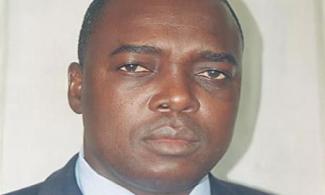
In his ruling, Justice Adejumo Obaseki quashed a 14-count charge against Justice Nganjiwa, a move that was condemned by the lawyers' activist group as placing judges above the law.
Reacting to Monday’s ruling by the Court of Appeal in Lagos that struck out criminal charges against Justice Hyeladzira Nganjiwa, the Movement of Lawyers for Total Liberation posited that the ruling would further promote corruption in the Nigerian judicial system.
In his ruling, Justice Adejumo Obaseki quashed a 14-count charge against Justice Nganjiwa, a move that was condemned by the lawyers' activist group as placing judges above the law.
Justice Adejumo ruled that a serving judge could not be investigated and prosecuted by the Economic and Financial Crimes Commission (EFCC), stating that only the National Judicial Council (NJC) had that power.
The court ruled that Justice Nganjiwa could not be charged by the anti-graft agency unless he is dismissed or forced into retirement by the NJC.
Appalled by the ruling, the lawyers’ movement, through its convener, Ayo Ademiluyi, said this would not help the course of purifying the judiciary, as it would increase corruption within the judicial system.
“We protest the ruling by the Court of Appeal, Lagos Division, in the appeal on the criminal charge preferred against Justice Nganjiwa by the Economic and Financial Crimes Commission (EFCC). In our opinion, we consider this as reversing the drive to cleanse the judiciary of impunity,” Mr. Ademiluyi said.
The lawyers’ group is demanding the reversal of the ruling by the court and an immediate scrapping of executive immunity that has been utilized to allow heinous crimes to go unpunished.
The anti-graft agency, through its media spokesperson, has also announced its intention of taking the case before the Supreme Court in an effort to have the appeal court's ruling overruled.
"Criminal trial takes precedence over administrative procedures and it is strange that the Court of Appeal wants to put the cart before the horse. This is ridiculous!” the EFCC said.
“The appellate court simply wants to confer immunity on public officers from prosecution for corruption, and it will not stand.”
The EFCC had arraigned Justice Nganjiwa for allegedly receiving $260,000 and N8.7 million in gratification to enrich himself as a public official.
